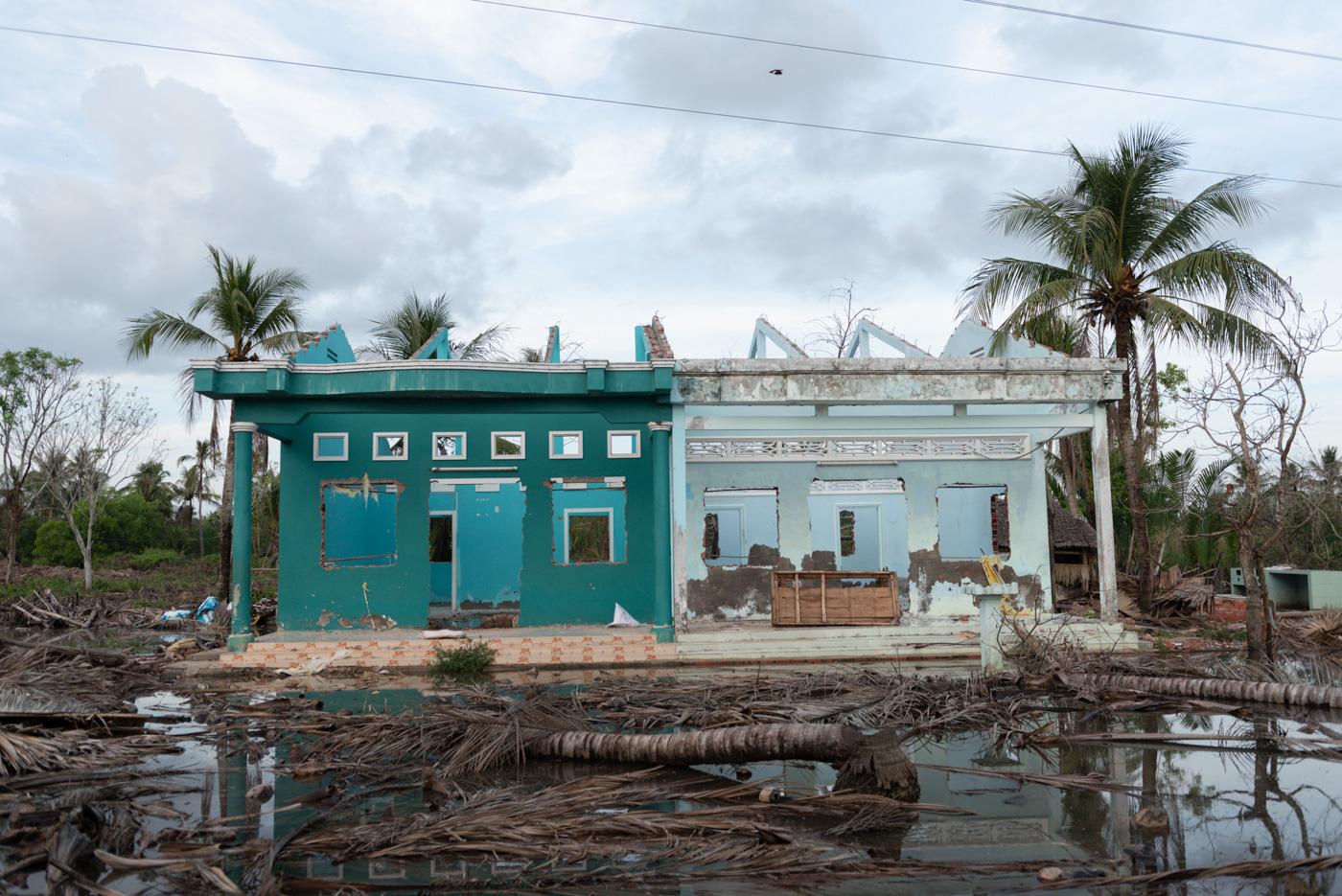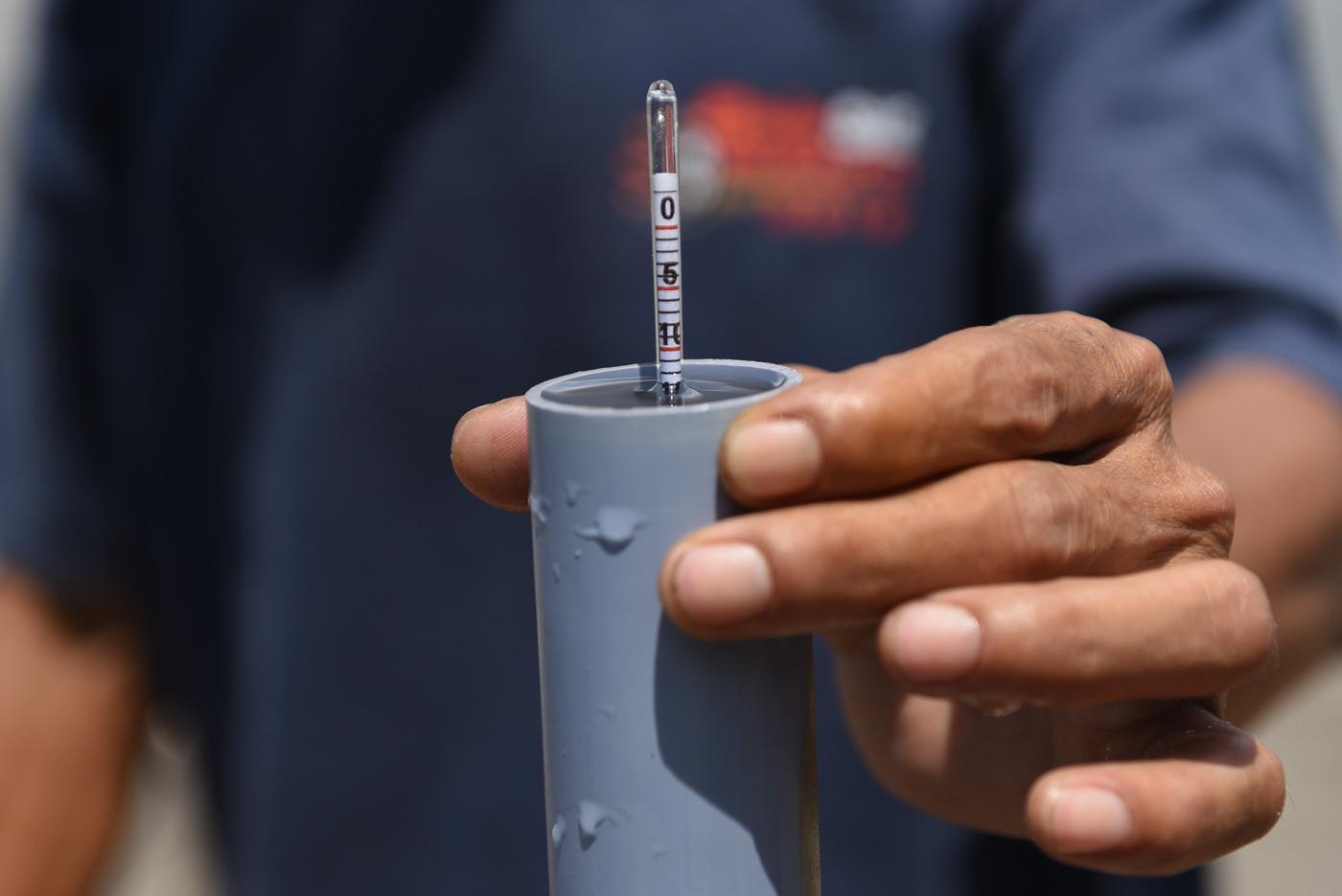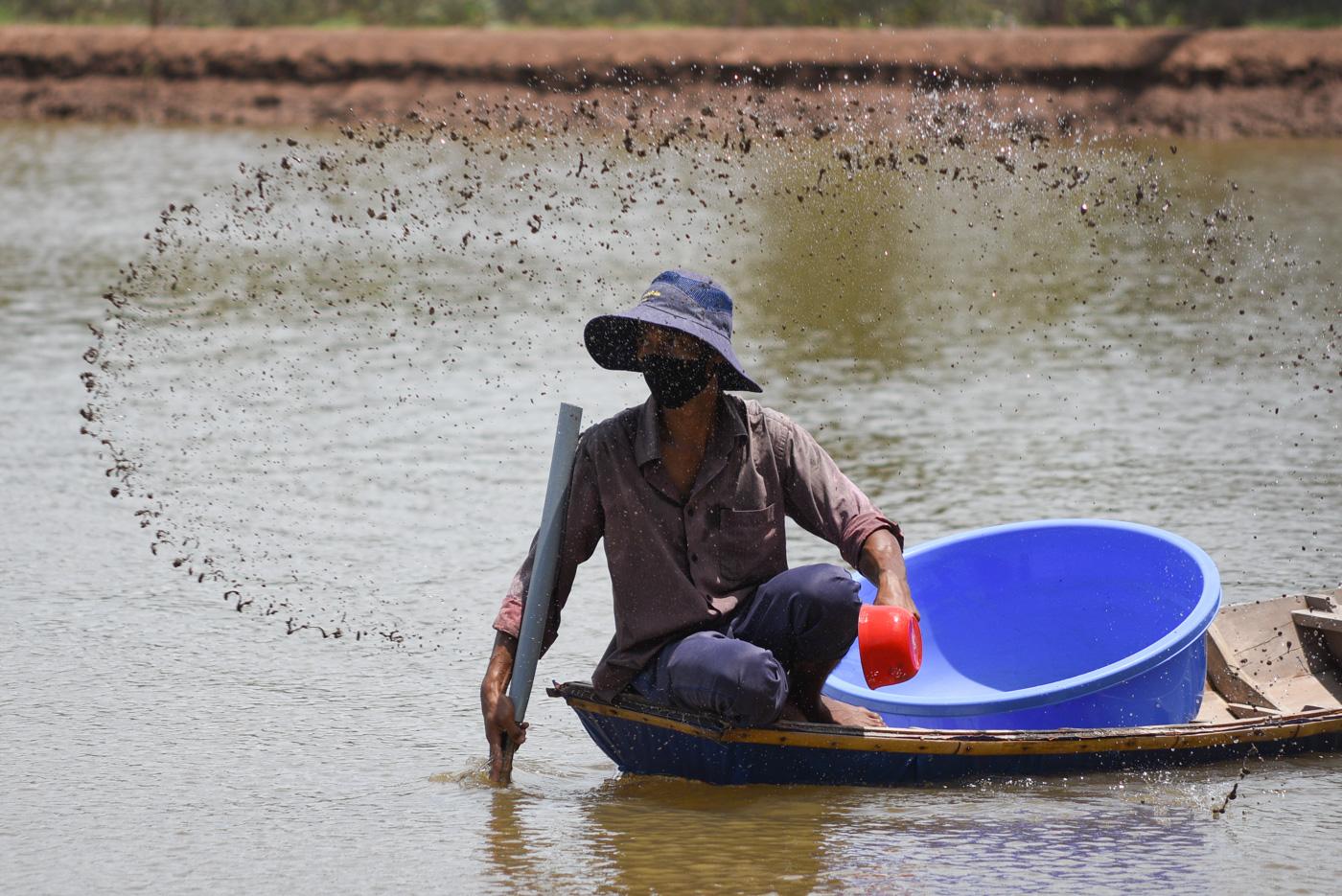Public Project
Climate change: Vietnamese rice farmers switch to shrimp
SOC TRANG, Vietnam, 2021 - For years, Ta Thi Thanh Thuy toiled on a sliver of land sandwiched between the Mekong River and the South China Sea, a region widely known as Vietnam's rice bowl, to grow the prized grain.
But Thuy, along with many of her neighbours, has over the past decade completed a production swap - to shrimp - a previously unlikely shift that was spurred by the effects of climate change.
As rising seawaters bring significantly increased salination levels in the Mekong Delta region, the trend toward cultivating shrimp ponds is expected to supercharge the country's seafood industry.
The seawater increase in the delta region has been compounded by the construction of several hyodropower dams upstream, further reducing fresh water flow.
The government has set an ambitious target to more than double shrimp exports from current levels to $10 billion by 2025 and delta farmers have benefited from local authority training sessions and other measures, including some soft loans.
"Life was very hard for us until we began to farm shrimp," Thuy, 52, said. "Many shrimp farmers around here have been able to build nice houses and open saving accounts at banks."
The seawater increase in the delta region has been compounded by the construction of several hyodropower dams upstream, further reducing fresh water flow.
"We planted rice but we harvested no rice," said fellow shrimp farmer Ta Thanh Long. "There was a time the rice could still grow when the water was still fresh. But then the water became more and more salty each year."
At least one third of the rice farming area along Soc Trang province's 72-kilometre coastline has been affected by salination over the past few years, said Duong Minh Hoang, former director of the province's Agriculture Promotion Centre.
Shrimp farmers say they are already dealing with worrying signs of accelerating salinity levels."We have to dig the wells deeper for freshwater now," added Thuy. "We are very concerned that because of rising seawater levels our farms will one day be submerged."
Text by Khanh Vu
Published on Reuters
3,646















